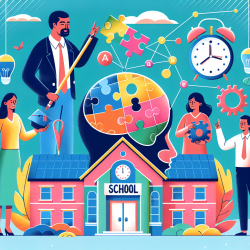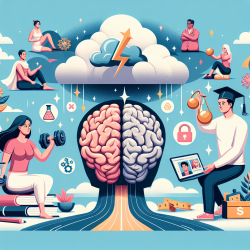The mental health of students is increasingly becoming a focal point for educators and policymakers worldwide. As the demand for school-based mental health services rises, it is crucial for schools to effectively leverage the skills of their existing staff. A recent study titled "Roles and Functions of School Mental Health Professionals Within Comprehensive School Mental Health Systems" sheds light on how schools can optimize their mental health services by utilizing the competencies of their staff more efficiently.
The Core Competencies
The study highlights the importance of core clinical competencies that are essential for implementing comprehensive school mental health (SMH) systems. These competencies include:
- Mental health assessment and diagnosis
- Counseling and therapy provision
- Collaboration with families and community partners
- Mental health education and prevention programs
- Culturally responsive practices
The research indicates that while school counselors, psychologists, social workers, and nurses are trained in these areas, their skills are often underutilized in daily practice. This presents an opportunity for schools to enhance their service delivery by maximizing the use of these professionals' expertise.
Strategies for Improvement
The study suggests two key strategies for improving the effectiveness of SMH services:
1. Task Shifting
This involves reallocating tasks that are less central to mental health service delivery to other staff members. By doing so, mental health professionals can focus more on providing direct services to students, thereby increasing their impact.
2. Integrated Service Models
An integrated model of school mental health services allows for a coordinated approach where all professionals work together towards common goals. This model reduces service fragmentation and ensures that students receive comprehensive support tailored to their needs.
The Role of Interprofessional Collaboration
The research emphasizes the importance of interprofessional collaboration in delivering effective SMH services. By understanding each profession's unique competencies and coordinating roles accordingly, schools can create a seamless service delivery system that maximizes each professional's contribution.
A Call to Action
This study serves as a call to action for school leaders and mental health practitioners to reassess how they utilize their staff's skills. By implementing these strategies, schools can better meet the rising mental health needs of students and create a supportive environment conducive to learning and personal development.
If you're interested in delving deeper into this topic, I encourage you to explore further research or consider attending relevant conferences and webinars. For those who wish to read the original research paper, please follow this link: Roles and Functions of School Mental Health Professionals Within Comprehensive School Mental Health Systems.










